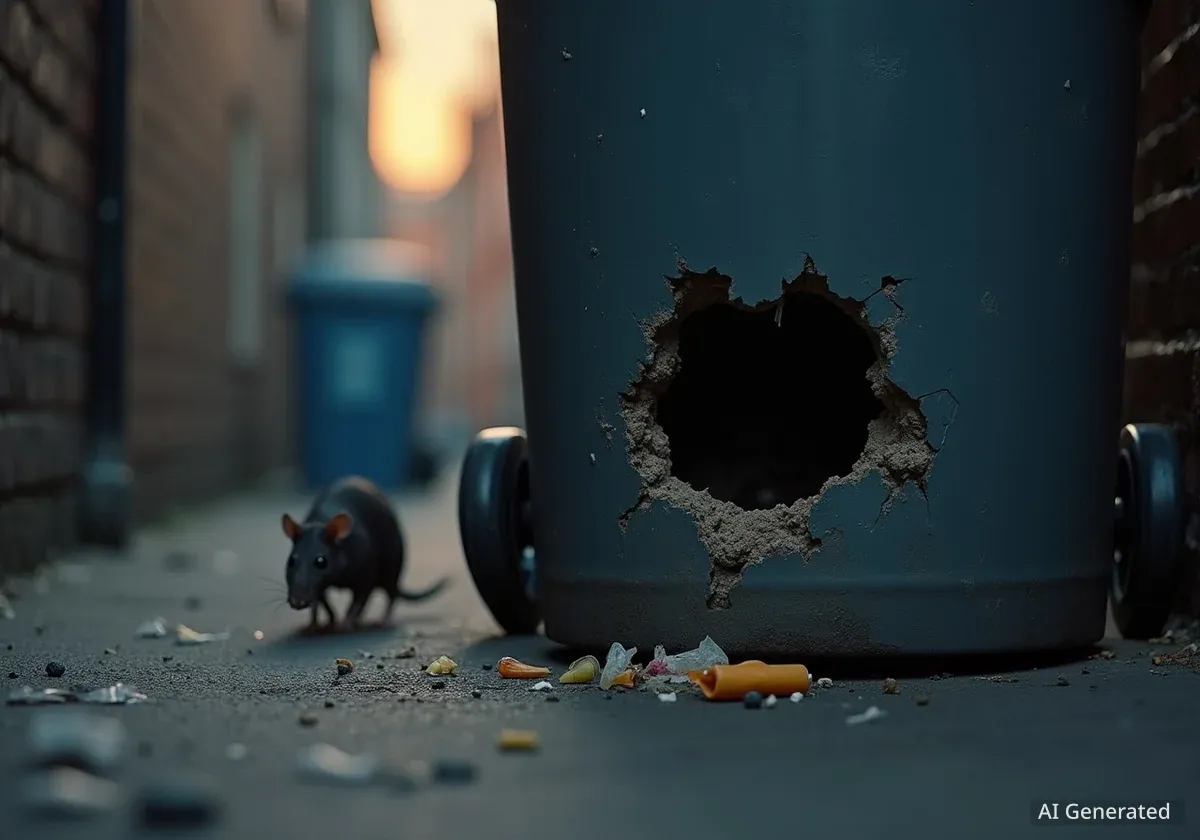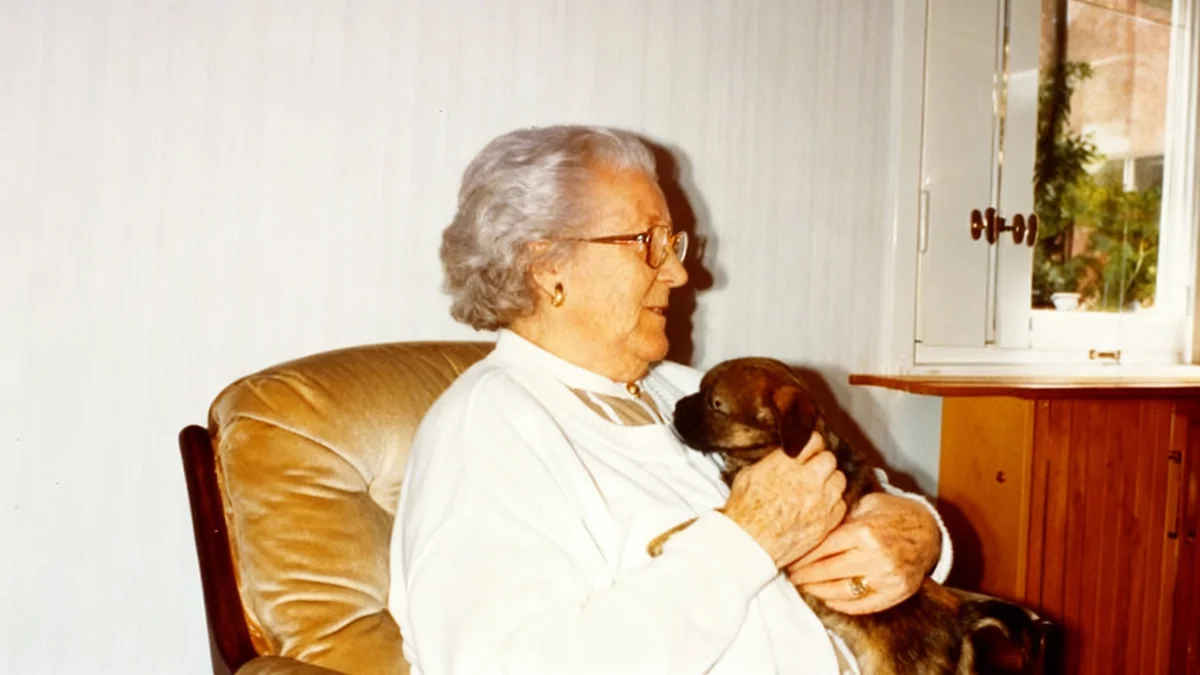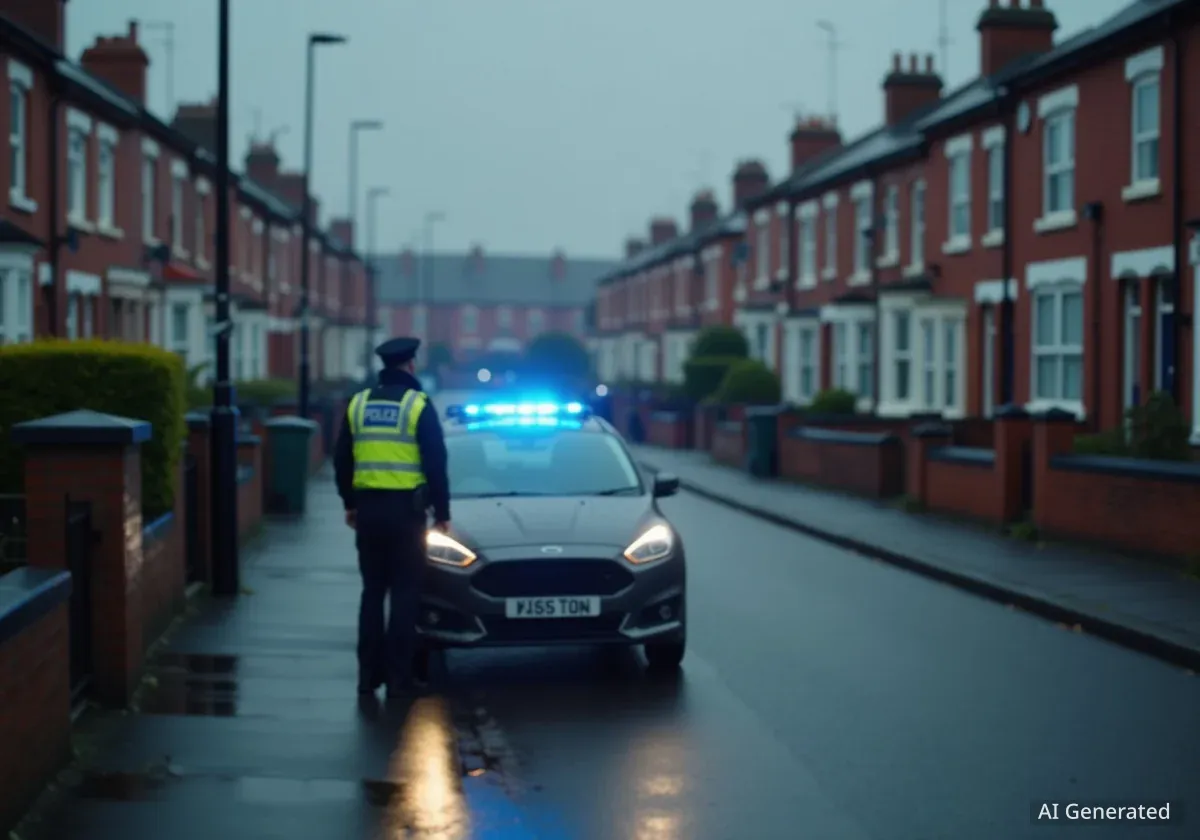A long-term Liverpool resident has raised concerns about a growing rat problem after discovering rodents are chewing holes directly through the city's standard-issue purple wheelie bins to access waste. The discovery has prompted questions about the security of refuse containers, especially with a new food waste collection service being introduced.
Key Takeaways
- A resident in the Canning Street area found a live rat trapped inside his sealed purple wheelie bin.
- He discovered rats create small entry holes by chewing through the plastic of the bins.
- A local survey by the resident suggested approximately one in six purple bins in the area had similar holes.
- Concerns have been raised that the new food waste collection scheme could worsen the issue if bins are not rodent-proof.
- Liverpool City Council has provided advice for residents and outlined measures to control the pest population.
A Resident's Alarming Discovery
Bob Pointing, a 77-year-old who has lived in the Canning Street area for 50 years, recently encountered a disturbing sight. He found a live rat inside his purple general waste bin, even though the lid was securely closed. The bin was empty at the time, leaving him puzzled as to how the rodent got inside.
Upon closer inspection, Mr. Pointing located a small hole chewed through the plastic. He later learned from pest control services that this is a common way for rats to gain entry to wheelie bins. This experience challenged his assumption that the council-issued bins were sufficient to keep pests out.
What Are Purple Bins?
In Liverpool, purple-lidded wheelie bins are used for general, non-recyclable household waste. They are a common sight across the city and form a key part of the municipal waste management system.
Wider Problem in Canning Street
Following his discovery, Mr. Pointing decided to investigate further. On his street's collection day, he examined other purple bins in and around the Canning Street area. His informal survey revealed a concerning pattern.
He found that approximately one in six bins showed evidence of similar entry holes created by rodents. This suggests the issue is not an isolated incident but a more widespread problem in the neighbourhood. Mr. Pointing believes this undermines efforts by residents to manage waste responsibly.
"Generally people are careful about depositing their food waste, but it really doesn’t make much difference if the rats can access the purple bins anyway," he explained.
Concerns Over New Food Waste Scheme
The timing of this discovery is particularly worrying for Mr. Pointing due to Liverpool City Council's plan to roll out a new, dedicated food waste collection service. He is concerned that if the new containers are made from similar materials, the problem could escalate significantly.
He expressed his fears in a letter to the council, enquiring about the design of the new food waste bins. He warned that if rats can also penetrate these containers, the city could face a major increase in its rodent population.
"I said if the rats could get access to these as well, we would have a gigantic and continuous Liverpool Rat-Feeding Fest," Mr. Pointing stated, highlighting the potential for an uncontrolled food source for pests.
He has urged the council to consider a program to identify and replace damaged bins over time with more robust, rodent-resistant models.
Liverpool City Council's Response and Advice
In response to the concerns, a spokesperson for Liverpool City Council provided a statement outlining their current strategies and advice for residents. The council attributes the primary cause of pest problems to improperly disposed of waste.
The spokesperson stated: “Rats and other pests are often drawn to waste that has been fly-tipped or left in bags next to bins. Residents are reminded to keep all household waste bagged and inside their purple bin with the lid closed to prevent attracting pests.”
Report a Damaged Bin
Residents with a damaged purple refuse bin can request a replacement by calling Liverpool City Council at 0151 233 3001. The council also provides free treatment for rats or mice at domestic properties, which can be reported on their website.
The council also detailed several measures being taken to address the rodent population and ensure the new food waste collection is secure:
- Partnership Work: The council is collaborating with housing providers to clear properties with excess rubbish and working with United Utilities on a targeted sewer baiting program.
- New Food Waste Bins: The new service includes specific features to deter pests, such as weekly collections, liners to minimize odours, and a lockable outdoor caddy.
- Pest Control Services: Free treatment for rats and mice is available to residents in domestic properties. Issues can be reported via the council's website or to a landlord for tenants.
The council's statement emphasizes that resident cooperation in correctly bagging and storing waste is a critical component in controlling the city's pest population.





